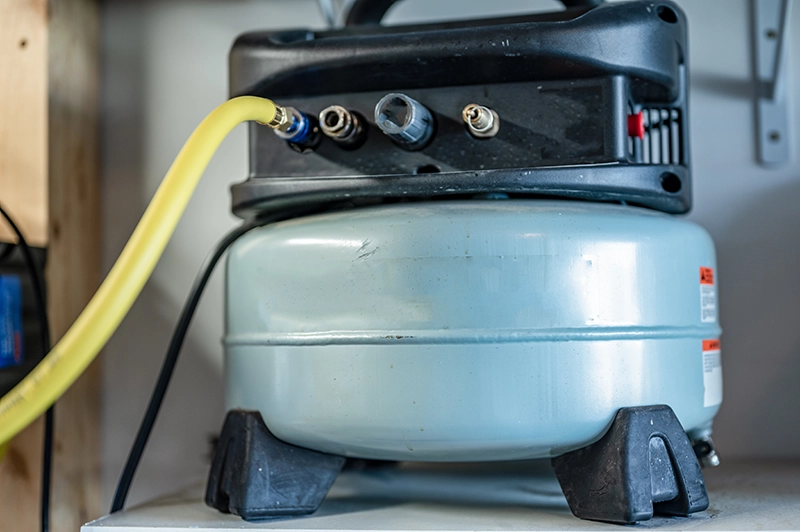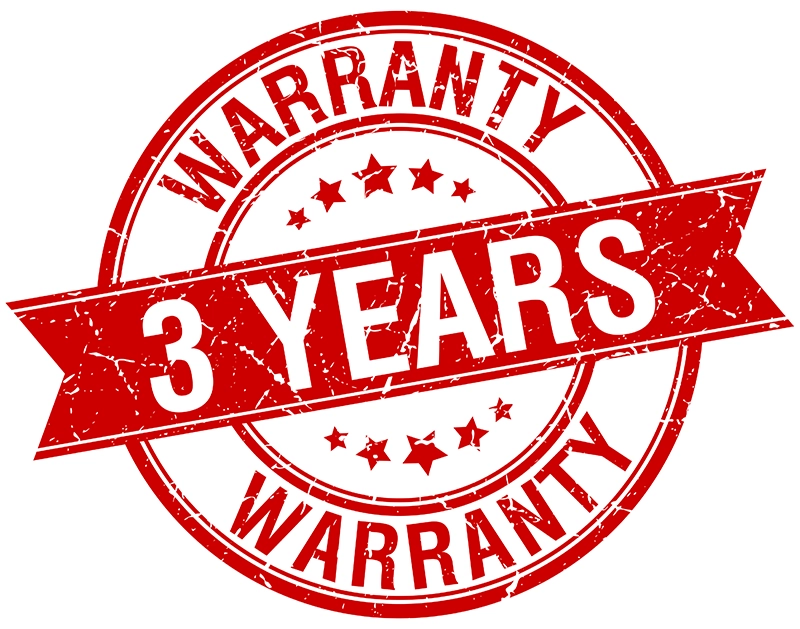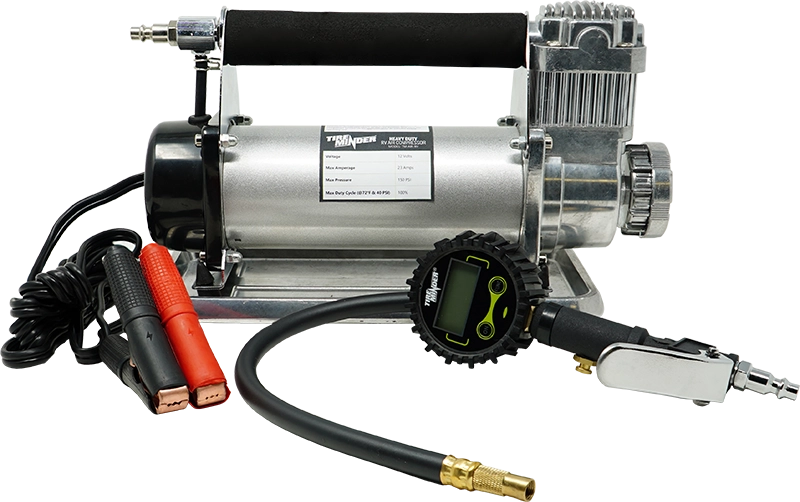Choosing the Best Air Compressor for Your RV
- Published -
Why Travel with an Air Compressor?
An air compressor is a necessary tool while traveling, especially when you’re RVing. As you travel, the pressure in your tires is going to change depending on the weather, temperature, and elevation. For example, we’re located in Stuart, Florida, which is near West Palm Beach. When traveling just 200 miles north, we can see a temperature drop of 30°F. An RV’s tire, with pressure ranges between 65 to 120 PSI, will usually see a 1.5 to 4 PSI drop for every 10 degrees of temperature drop. With a tire set to 65 PSI, you could easily drop down to below 60 PSI with a 30°F temperature drop. Higher PSI tires will see an even larger drop. That is why it is imperative to have an air compressor while traveling so that you can regulate your tire pressure and avoid over or underinflation.
What to Look for in an RV Air Compressor?
There’s a lot of specifications that we believe make a great RV air compressor stand out from a typical air compressor you can find at your local hardware store. The main differentiators are max PSI, AC vs DC, weight, and finally noise. Make sure to read each section as it’s not as cut and dry as you may think. We don’t want to put too much pressure on you, but if you’re serious about choosing the correct compressor, keep reading!
Compatibility
The first item on your air compressor check list is whether the compressor you choose will be able to fill your tires. They all should, right? Almost all compressors out there state at least 100 PSI Max… We wish that were true and it was that easy. All compressors have a pressure switch. Some pressure switches are adjustable, and some are not. For example, a 150 PSI compressor may have a non-adjustable pressure switch set to 90 PSI On and 110 PSI Off. What this means is that the compressor will fill up its air tank to 110 PSI and shut off. When the air pressure inside its tank drops below 100 PSI, the compressor will automatically turn on and start to fill to 110 PSI. If you have 120 PSI tires, you will not be able to fill your tires to the recommended pressure. Technically there’s a way to bypass this, but due to legal reasons and us being a safety company after all, we HIGHLY recommend not bypassing the pressure switch. You should also have enough of a pressure gap between your tire’s max PSI and your compressor’s max PSI. For example, if you’re trying to fill a 100 PSI tire with a 100 PSI max air compressor, going from 90 to 100 PSI is going to take some time, or be impossible. The reason is that your tire’s volume is generally pretty large on an RV. Due to the large volume, the compressor’s volume must be larger than your tire’s volume to be able to get to the same PSI. Remember Boyle’s Law from high school physics? See, we learned something we could use in real life! A good real world example of sizing up your compressor is our TireMinder RV AIR Compressor. Our compressor has a pressure switch which will turn on at 130 PSI and off at 155 PSI. Due to its high off pressure, you will have no slow down when filling, even if your tire’s recommended pressure is 120 PSI.
AC or DC Powered
The next item to decide is whether you need an air compressor that connects to AC or DC power? This can be answered easily by knowing if you have a 110V AC outlet on the exterior of your RV. If you do not have a 110V AC outlet on the exterior of your RV, this is an instant tell that you need a 12V DC air compressor. Now, you could always run an extension cord from inside your RV out to your tires, but what happens if you’re on the side of the road with pouring down rain. It’s not going to be an enjoyable moment and you could get water on the inside of the RV. You’re an RVer, you know these things happen!

Weight
Another important item for the decision process is weight. Many of your fellow RVers will use a pancake style compressor. Pancake style compressors typically weigh in at around 35lbs, and that’s the body alone. Do you want to dig around and pull out a 35lb compressor each time you need to fill up your tires? You guessed it, the answer is probably no! Portable RV compressors typically have a weight of only 10lbs for the main body. This weight is easy enough to maneuver in the deep storage compartments of your RV, making it quicker to set up and start filling your tires. When looking for a compressor, make sure it’s light enough that you’re not going through an Iron Man competition each time you fill your tires. I hate to go back to the side of the road scenario again, but come on, we all know that’s where you’re going to be when you need it! Make your life easier and choose a lighter compressor.
Noise Level
Loud noises at a campsite are generally frowned upon. When you’re out enjoying nature at your next campsite, do your fellow camper a favor and restrain from using a loud air compressor. The decibel rating, or dB, can be found on most air compressor’s specifications, which helps determine how loud the compressor will be. The lower the rating, the lower the noise will be created when using the compressor. For example, 80 dB is the level in which sustained exposure may result in hearing loss. So don’t go over 80. 60 to 70 dB is the noise level of a normal conversation, which is right where you should be to not upset your fellow RVers. Another thing to remember is you generally air up before leaving your house or campsite, which can be early in the morning or the night before. If you do air up at these times, make sure to choose a compressor that is closer to the 60 dB rating. You’ll be an awesome neighbor if you do!

Warranty
The final big ticket item to make sure is in your favor is the compressor’s warranty. Some compressors out there have warranties as short as 90 days. When buying something with moving parts, 90 days is a bit scary. We recommend looking for a 1 year or longer warranty from a trusted company. That way if anything does happen, you know you’ll be taken care of. You may also want to look into how the warranty is handled, such as if you have to pay for shipping when returning, or if you’re responsible for the labor to fix the issue.
While there’s a lot to consider when purchasing an RV compressor that’s right for you, take the time to compare and understand the pros and cons of different types and brands of air compressors. However, if you agree with the points laid out in this article and would like a fantastic air compressor backed by one of the most trusted brands in the RV industry, then you will love our TireMinder RV AIR Compressor. It’s DC-powered with a 150 PSI max PSI and 3 year warranty. It also comes with a ton of additional features you can learn more about using the link below.

Thanks for reading, and from all of us at TireMinder, be safe on the road!
